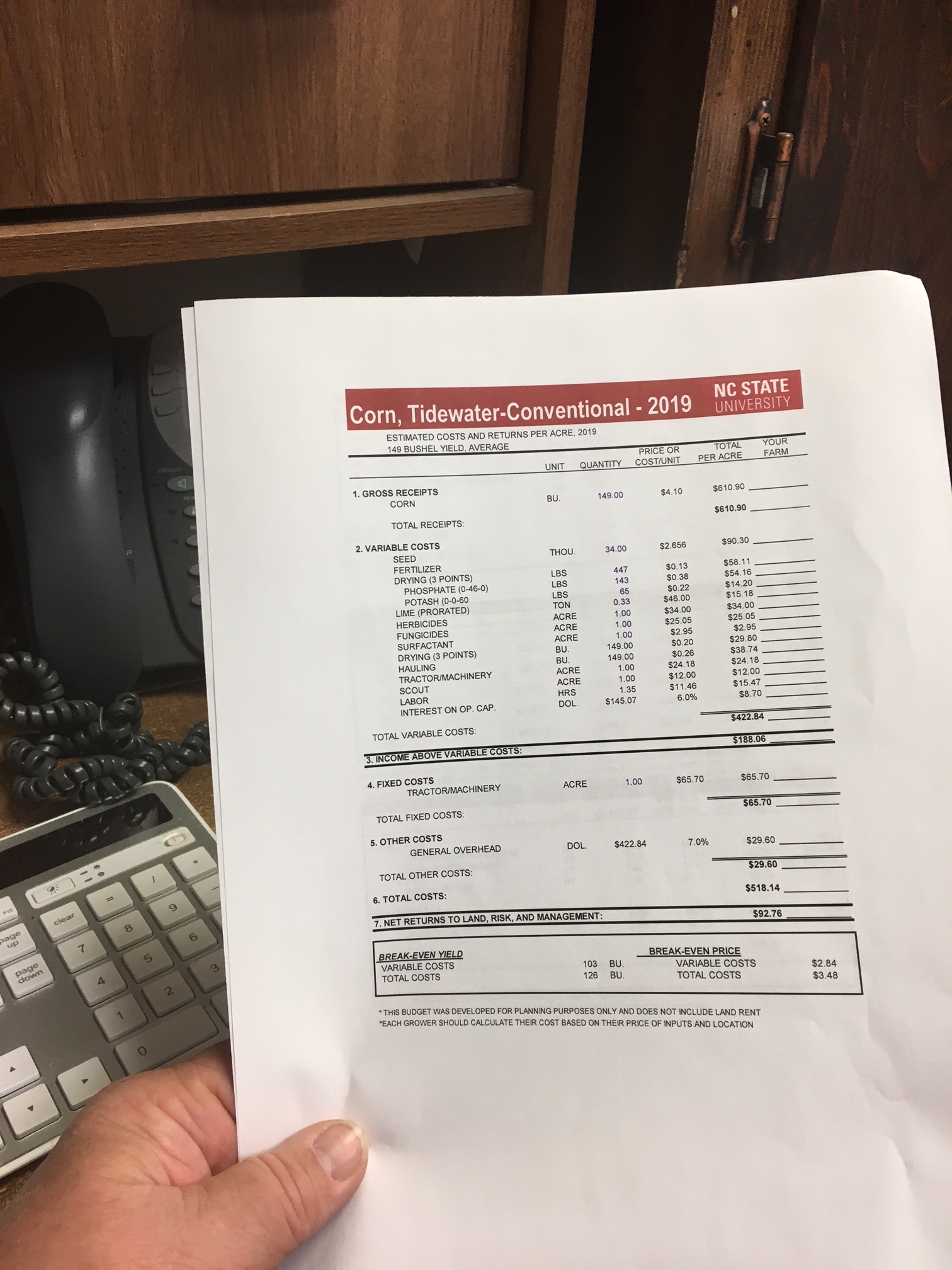Crops Budgets from NC State University from ARE Department
go.ncsu.edu/readext?580374
en Español / em Português
El inglés es el idioma de control de esta página. En la medida en que haya algún conflicto entre la traducción al inglés y la traducción, el inglés prevalece.
Al hacer clic en el enlace de traducción se activa un servicio de traducción gratuito para convertir la página al español. Al igual que con cualquier traducción por Internet, la conversión no es sensible al contexto y puede que no traduzca el texto en su significado original. NC State Extension no garantiza la exactitud del texto traducido. Por favor, tenga en cuenta que algunas aplicaciones y/o servicios pueden no funcionar como se espera cuando se traducen.
Português
Inglês é o idioma de controle desta página. Na medida que haja algum conflito entre o texto original em Inglês e a tradução, o Inglês prevalece.
Ao clicar no link de tradução, um serviço gratuito de tradução será ativado para converter a página para o Português. Como em qualquer tradução pela internet, a conversão não é sensivel ao contexto e pode não ocorrer a tradução para o significado orginal. O serviço de Extensão da Carolina do Norte (NC State Extension) não garante a exatidão do texto traduzido. Por favor, observe que algumas funções ou serviços podem não funcionar como esperado após a tradução.
English
English is the controlling language of this page. To the extent there is any conflict between the English text and the translation, English controls.
Clicking on the translation link activates a free translation service to convert the page to Spanish. As with any Internet translation, the conversion is not context-sensitive and may not translate the text to its original meaning. NC State Extension does not guarantee the accuracy of the translated text. Please note that some applications and/or services may not function as expected when translated.
Collapse ▲Farming is a very demanding profession. Farmers have to wear many hats including being a marketer of agricultural commodities. To do that there are several bits of information they need to know including the cost of producing those commodities. A good place to go to get that information for field crops is the NC State University Agricultural & Resource Economics (ARE) Department’s website. In fact, Derek Washburn, NC Farm School Program Associate of the ARE Department conducted a program several weeks ago at the Pasquotank County Center for growers and others about these crop budgets that he helped develop. Crop budgets for corn, soybean, and wheat can be obtained by visiting the CALS Enterprise Budgets page.

Select crop budgets for corn, soybean, and wheat for 2019 like the one shown in this picture can be found at the NC State University Agricultural Resource Economics Department’s website. See the link in the article above.



